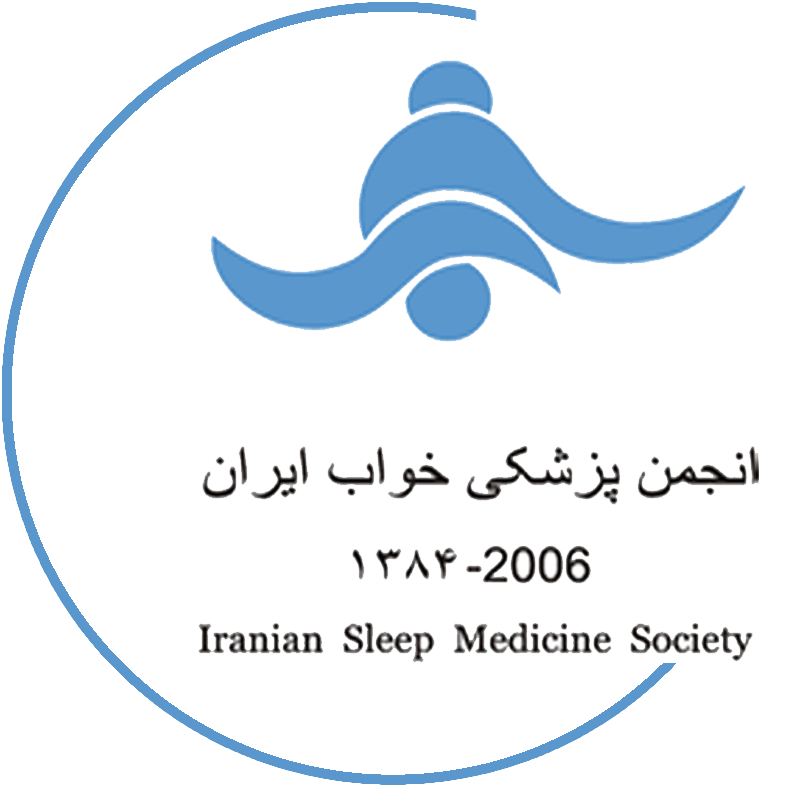Dysfunctional Beliefs and Attitudes about Sleep and Its Relation with Insomnia in Three Groups of Psychiatric Patients
Abstract
Background and Objective: Reports have shown a link between dysfunctional beliefs about sleep and sleep disorders. We investigated the frequency of dysfunctional beliefs about sleep in three groups of patients suffering from psychiatric disorders (patients with major depression, bipolar disorder, and anxiety).
Materials and Methods: In this cross-sectional study, 150 patients with psychiatric disorders referred to psychiatry clinic affiliated to Qazvin University of Medical Sciences, Qazvin, Iran. Fifty patients were selected in each group (anx-iety, depression, and bipolar disorder). Two questionnaires of Dysfunctional Beliefs and Attitudes about Sleep (DBAS) and Insomnia Severity Index (ISI) were completed for all patients. Data were analyzed with Student’s t, chi-square, analysis of variance (ANOVA), and Pearson correlation tests.
Results: A significant difference was observed between the three groups in the latency to fall asleep at night (P = 0.002) and Pittsburgh Sleep Quality Index (PSQI) ≤ 5 (P = 0.002). Patients with anxiety and bipolar disorder more than other groups believed that insomnia caused loss of life joy (P = 0.010) and the only solution for sleeplessness was medication (P = 0.003), respectively. There was a significant relationship between sleep quality and anxiety (P = 0.030), total sleep time (P = 0.040), sleep latency (P = 0.020), and ISI (P < 0.010) with depression, awakening time during night, and bipo-lar disorder (P = 0.030).
Conclusion: Patients with psychiatric disorders have high frequency of dysfunctional beliefs about sleep. Regarding the relationship between dysfunctional beliefs about sleep and insomnia, future work is needed for better treatment.
2. Yazdi Z, Sadeghniiat-Haghighi K, Javadi AR, et al. Sleep quality and insomnia in nurses with different circadian chronotypes: Morningness and eveningness orientation. Work 2014; 47: 561-7.
3. Walia HK, Mehra R. Overview of common sleep disorders and intersection with dermatologic conditions. Int J Mol Sci 2016; 17.
4. Marks R, Landaira M. Sleep, Disturbances of sleep, stress and obesity: A narrative review. J Obes Eat Disord 2015; 1: 6.
5. Shaw JE, Punjabi NM, Wilding JP, et al. Sleep-disordered breathing and type 2 diabetes: A report from the International Diabetes Federation Task-force on Epidemiology and Prevention. Diabetes Res Clin Pract 2008; 81: 2-12.
6. Yazdi Z, Sadeghniiat-Haghighi K, Zohal MA, et al. Validity and reliability of the Iranian version of the insomnia severity index. Malays J Med Sci 2012; 19: 31-6.
7. Choi SJ, Joo EY, Lee YJ, et al. Suicidal ideation and insomnia symptoms in subjects with obstructive sleep apnea syndrome. Sleep Med 2015; 16: 1146-50.
8. Steinan MK, Scott J, Lagerberg TV, et al. Sleep problems in bipolar disorders: more than just insomnia. Acta Psychiatr Scand 2016; 133: 368-77.
9. Turek FW. Insomnia and depression: if it looks and walks like a duck. Sleep 2005; 28: 1362-3.
10. Dolder CR, Nelson MH, Iler CA. The effects of mirtazapine on sleep in patients with major depressive disorder. Ann Clin Psychiatry 2012; 24: 215-24.
11. Plante DT, Winkelman JW. Sleep disturbance in bipolar disorder: Therapeutic implications. Am J Psychiatry 2008; 165: 830-43.
12. Ritter PS, Hofler M, Wittchen HU, et al. Disturbed sleep as risk factor for the subsequent onset of bipolar disorder--Data from a 10-year prospective-longitudinal study among adolescents and young adults. J Psychiatr Res 2015; 68: 76-82.
13. Rumble ME, Keefe FJ, Edinger JD, et al. Contribution of cancer symptoms, dysfunctional sleep related thoughts, and sleep inhibitory behaviors to the insomnia process in breast cancer survivors: A daily process analysis. Sleep 2010; 33: 1501-9.
14. Morin CM, Vallieres A, Ivers H. Dysfunctional beliefs and attitudes about sleep (DBAS): validation of a brief version (DBAS-16). Sleep 2007; 30: 1547-54.
15. Morin CM. Dysfunctional beliefs and attitudes about sleep: Preliminary scale development and description. The Behavior Therapist. 1994; 17: 163-4.
16. Nazifi M, Mokarami H, Akbaritabar A, et al. Psychometric properties of the Persian Translation of Pittsburgh Sleep Quality Index. Health Scope 2014; 3: e15547.
17. Carney CE, Edinger JD, Manber R, et al. Beliefs about sleep in disorders characterized by sleep and mood disturbance. J Psychosom Res 2007; 62: 179-88.
18. Li W, Huang X, Zhang L. Dysfunctional beliefs and attitudes on sleep and sleep disturbances pre- and post-antidepressant treatments in patients with major depression. Zhong Nan Da Xue Xue Bao Yi Xue Ban 2011; 36: 9-14.
19. Harvey AG, Talbot LS, Gershon A. Sleep Disturbance in bipolar disorder across the lifespan. Clin Psychol (New York) 2009; 16: 256-77.
20. Bauer M, Grof P, Rasgon N, et al. Temporal relation between sleep and mood in patients with bipolar disorder. Bipolar Disord 2006; 8: 160-7.
21. Taylor DJ, Lichstein KL, Durrence HH, et al. Epidemiology of insomnia, depression, and anxiety. Sleep 2005; 28: 1457-64.
22. Lacruz ME, Schmidt-Pokrzywniak A, Dragano N, et al. Depressive symptoms, life satisfaction and prevalence of sleep disturbances in the general population of Germany: results from the Heinz Nixdorf Recall study. BMJ Open 2016; 6: e007919.
| Files | ||
| Issue | Vol 5 No 4 (2020): Autumn | |
| Section | Original Article(s) | |
| DOI | https://doi.org/10.18502/jss.v5i4.7806 | |
| Keywords | ||
| Bipolar disorder Depression Anxiety Beliefs Attitudes Sleep | ||
| Rights and permissions | |

|
This work is licensed under a Creative Commons Attribution-NonCommercial 4.0 International License. |



